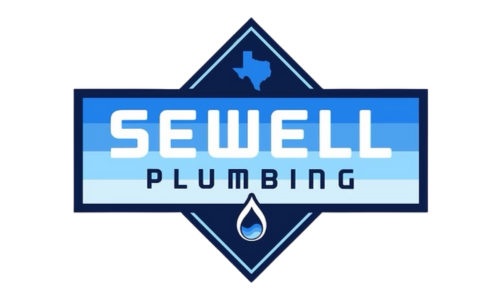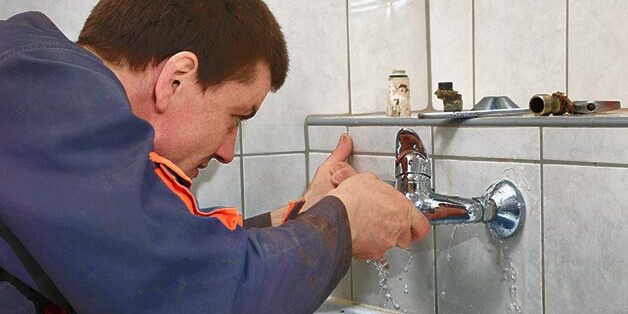Water leaks can cause significant damage to your home and lead to high utility bills. Timely water leak repair service is crucial to prevent these issues. In this comprehensive guide, we will cover everything you need to know about identifying, repairing, and preventing water leaks.
Understanding Water Leaks
Types of Water Leaks
Water leaks come in various forms, including visible leaks, hidden leaks, and underground leaks. Visible leaks are easy to spot and usually occur in faucets, pipes, or water appliances. Hidden leaks are more challenging to detect as they occur within walls, ceilings, or floors. Underground leaks often involve your home’s main water supply line or irrigation system and can be identified through unexplained water puddles or high water bills.
Common Causes of Water Leaks
Several factors can cause water leaks, such as pipe corrosion, high water pressure, poor installation, or lack of maintenance. Over time, pipes can corrode due to chemical reactions with the water or surrounding soil. High water pressure can strain pipes and fittings, leading to leaks. Improper installation of plumbing systems can also result in leaks, and neglecting regular maintenance can exacerbate these problems.
Impact of Water Leaks
Water leaks can have severe consequences, including water damage, increased utility bills, and structural issues. Water damage can lead to mold growth, which poses health risks. Structural damage to your home’s foundation, walls, or floors can be costly to repair. Addressing leaks promptly with professional water leak repair services is essential to mitigate these risks.
Identifying Water Leaks
Visible Signs of Leaks
Identifying visible leaks involves looking for damp spots, water stains, or pooled water around fixtures and appliances. Dripping sounds or running water noises can also indicate a leak. Regularly checking these areas can help catch leaks early.
Using Detection Tools
Advanced tools can help detect hidden leaks. Water meters can monitor your water usage and alert you to potential leaks. Moisture sensors can detect high humidity levels in walls or floors, indicating a leak. Infrared cameras can visualize temperature differences caused by water leaks behind walls or under floors.
Hiring a Professional for Leak Detection
When leaks are hard to find, professional water leak repair services are invaluable. Professionals use specialized equipment to pinpoint leaks without causing damage to your home. Hiring a professional ensures accurate detection and effective repair.
DIY vs. Professional Water Leak Repair
When to DIY
DIY repairs are suitable for small, visible leaks that require basic plumbing knowledge and tools. Fixing a dripping faucet or a minor pipe leak can often be done by homeowners. Ensure you have the necessary tools and follow safety guidelines to avoid further damage.
When to Call a Professional
For hidden or extensive leaks, lack of experience, or major plumbing issues, it’s best to call a professional. Professional water leak repair services have the expertise and equipment to handle complex repairs safely and efficiently. They can also identify underlying issues that may not be apparent.
Evaluating Costs and Benefits
Consider the costs and benefits of DIY vs. professional repairs. While DIY may save money initially, improper repairs can lead to more significant issues and higher costs in the long run. Professional repairs provide peace of mind and long-term effectiveness.
Common Water Leak Repair Techniques
Fixing Faucet Leaks
Faucet leaks are common and usually caused by worn washers, O-rings, or valve seats. Replacing these components can stop the leak. Tightening connections and ensuring proper installation can prevent future leaks.
Repairing Pipe Leaks
Pipe leaks can be fixed using pipe clamps, tapes, or epoxy putty. For more severe damage, replacing the damaged pipe section may be necessary. Ensure the pipes are clean and dry before applying any repair materials.
Addressing Underground Leaks
Underground leaks require more intensive repair methods, such as excavation and pipe replacement. Trenchless repair methods, like pipe lining or pipe bursting, can be less invasive and just as effective. Preventive measures, such as regular inspections and maintenance, can help avoid underground leaks.
Tools and Materials for Water Leak Repair
Basic Tools
Essential tools for water leak repair include wrenches, pliers, screwdrivers, and pipe cutters. Teflon tape and various sealants are also necessary for ensuring leak-proof connections. These tools are typically available at hardware stores.
Specialized Equipment
For more complex repairs, specialized equipment like pipe repair kits, leak detection devices, and power tools may be required. These tools can help accurately identify and repair leaks, ensuring a long-lasting fix.
Safety Equipment
Safety equipment is crucial when performing water leak repairs. Gloves and goggles protect you from sharp edges and harmful chemicals. Respirators are necessary if you’re working with toxic substances, and protective clothing can shield you from exposure.
Step-by-Step Guide to Fixing Common Leaks
Repairing a Leaky Faucet
- Turn off the water supply to the faucet.
- Disassemble the faucet to access the internal components.
- Replace worn washers, O-rings, or valve seats.
- Reassemble the faucet and turn the water supply back on to check for leaks.
Fixing a Leaky Pipe
- Identify the leak location and turn off the water supply.
- Clean and dry the pipe surface around the leak.
- Apply a pipe clamp, tape, or epoxy putty to seal the leak.
- Turn the water supply back on and check for leaks.
Sealing a Toilet Leak
- Check the toilet flapper and fill valve for wear and tear.
- Replace any worn seals and gaskets.
- Adjust the water level in the tank to ensure proper operation.
- Turn the water supply back on and check for leaks.
Preventive Maintenance Tips
Regular Inspections
Perform regular inspections to catch leaks early. Check visible plumbing fixtures and high-risk areas, such as under sinks and around appliances. Scheduling professional inspections annually can help identify hidden issues.
Maintaining Plumbing Fixtures
Clean and replace components of your plumbing fixtures regularly. Ensure they are properly installed and functioning correctly. Monitor your water pressure to prevent strain on your plumbing system.
Seasonal Maintenance
Prepare your plumbing for different seasons. Winterize pipes to prevent freezing and bursting. Inspect for damage after freezing temperatures. Ensure your plumbing is ready for heavy rain by checking for proper drainage.
Impact of Water Leaks on Home Value
Structural Damage
Water leaks can cause significant structural damage to your home. Damage to foundations, walls, and floors can compromise the integrity of your home and lead to costly repairs. Addressing leaks promptly can prevent this damage.
Mold and Mildew
Leaks can lead to mold and mildew growth, posing health risks to your family. Remediation costs for mold can be high, and prevention is the best strategy. Regular inspections and prompt repairs can help keep your home mold-free.
Aesthetic and Functional Damage
Water leaks can damage your home’s flooring, ceilings, and other aesthetic features. This damage can affect the overall look and functionality of your home. Restoring these areas can be expensive, so preventing leaks is crucial.
Insurance and Water Leak Repairs
Homeowner’s Insurance Coverage
Homeowner’s insurance typically covers sudden and accidental water damage but may exclude long-term leaks or maintenance issues. Check your policy to understand what is covered and any exclusions.
Documenting Damage
If you need to file an insurance claim, document the damage thoroughly. Take photos and videos, keep repair receipts, and write detailed reports. Proper documentation can support your claim and ensure you receive adequate compensation.
Working with Insurance Adjusters
When working with insurance adjusters, provide all necessary documentation and be prepared to answer questions about the damage. Understanding the claim process and negotiating settlements can help you get the best outcome.
Choosing the Right Water Leak Repair Service
Researching Options
Research different water leak repair services by checking credentials, certifications, and reviews. Compare the services they offer and ensure they have experience with your specific issue.
Getting Estimates
Request detailed quotes from several repair services. Compare the costs, services, and materials used. This will help you find the best value for your money.
Making the Final Decision
Consider warranties and guarantees when choosing a repair service. Ensure you understand the scope of work and have clear communication with the contractor. This will help ensure a successful repair.
Cost Considerations for Water Leak Repairs
Factors Affecting Repair Costs
Repair costs can vary based on the location and severity of the leak, the repair method used, and labor and material costs. Understanding these factors can help you budget for repairs.
Budgeting for Repairs
Estimate potential repair costs and set aside an emergency fund for unexpected repairs. Prioritize necessary repairs to prevent further damage and higher costs in the future.
Long-Term Savings
Investing in regular maintenance and prompt repairs can prevent future leaks, reduce water bills, and maintain your property value. Long-term savings can offset the initial repair costs.
Environmental Impact of Water Leaks
Water Waste
Water leaks contribute to significant water waste, which has environmental implications. Reducing water waste through prompt repairs can conserve water resources and reduce your utility bills.
Energy Consumption
Leaks can increase energy consumption, especially if hot water is leaking. This impacts your utility bills and the environment. Energy-saving tips, such as insulating pipes and regular maintenance, can help reduce consumption.
Sustainable Plumbing Solutions
Consider eco-friendly repair materials and water-efficient fixtures to reduce your environmental footprint. Promoting sustainable practices in your home can contribute to a healthier planet.
FAQs
- How do I know if I have a water leak?
Common signs include damp spots, water stains, dripping sounds, and high water bills. Use detection tools or hire a professional for confirmation.
- Can I fix a water leak myself?
Small, visible leaks can be fixed DIY with basic plumbing knowledge. For hidden or extensive leaks, professional repair services are recommended.
- What are the most common causes of water leaks?
Pipe corrosion, high water pressure, poor installation, and lack of maintenance are common causes. Regular inspections can help prevent these issues.
- How much does professional leak repair cost?
Costs vary based on leak location and severity. Average repair costs range from $150 to $2,500. Get multiple quotes for accurate estimates.
- Are water leaks covered by insurance?
Homeowner’s insurance typically covers sudden and accidental water damage. Long-term leaks or maintenance issues may not be covered. Check your policy for details.
- How often should I inspect my plumbing for leaks?
Inspect visible plumbing fixtures regularly and schedule professional inspections annually to catch hidden issues early.
- What should I do if I find a hidden leak?
Turn off the water supply and call a professional water leak repair service. Document the damage for insurance purposes.
- How can I prevent future water leaks?
Regular maintenance, monitoring water pressure, and using quality materials can help prevent leaks. Winterize pipes to avoid freezing damage.
- What tools do I need for basic leak repairs?
Essential tools include wrenches, pliers, screwdrivers, pipe cutters, Teflon tape, and sealants. Safety equipment like gloves and goggles is also important.
- How do water leaks affect my utility bills?
Leaks can significantly increase water and energy bills. Prompt repairs can help reduce these costs and conserve resources.
Conclusion
Water leak repair services are essential for maintaining a safe and efficient home. Addressing leaks promptly can prevent water damage, reduce utility bills, and preserve your home’s value. Whether you choose to tackle repairs yourself or hire a professional, understanding the process and taking preventive measures can save you time and money in the long run. Keep your home leak-free and enjoy the peace of mind that comes with a well-maintained plumbing system.







